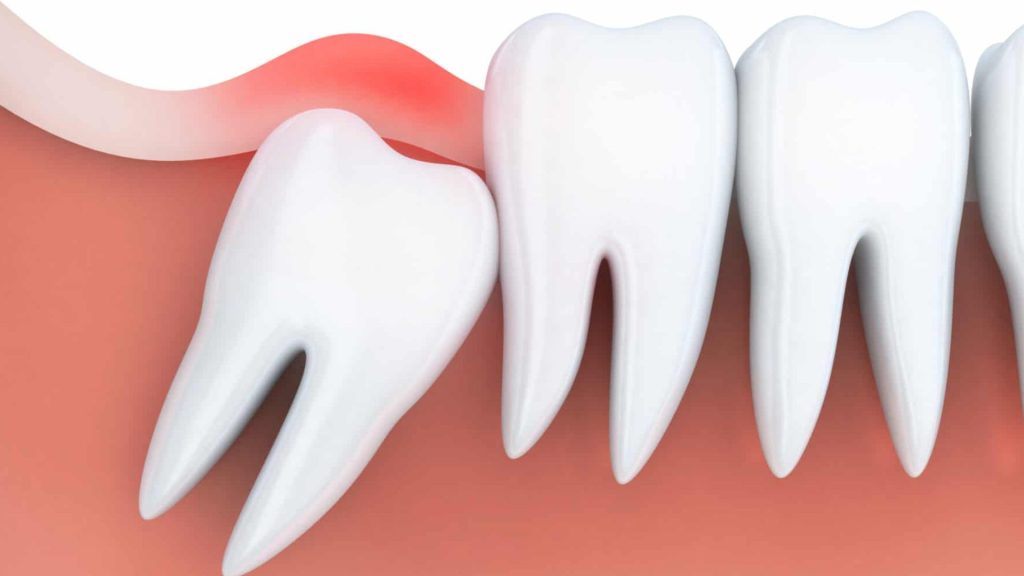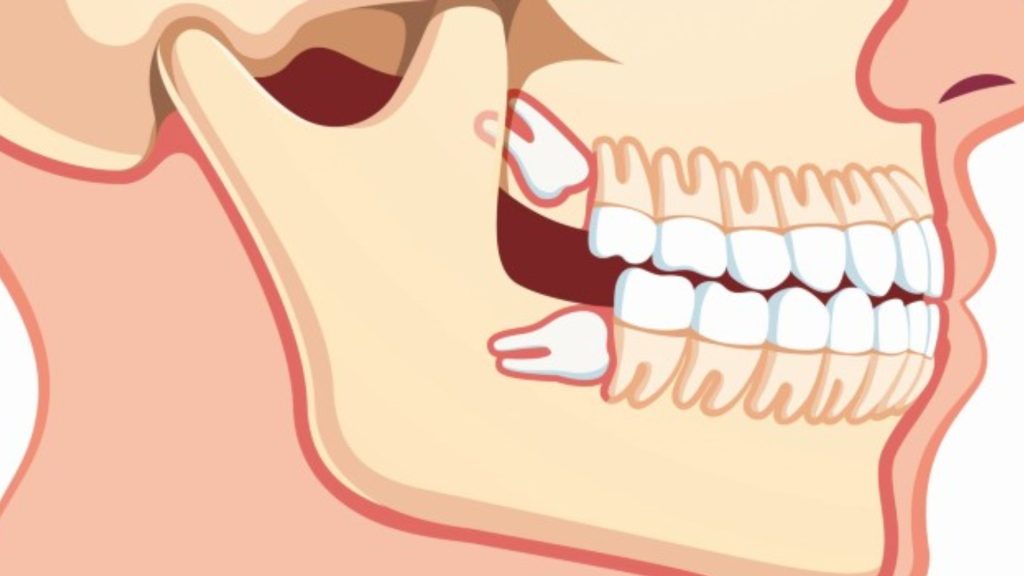Do dentists break your jaw to remove wisdom teeth? No, dentists do not shatter your jaw to remove wisdom teeth on a regular basis. Third molars, or wisdom teeth, are extracted by creating an incision in the gum tissue, removing any bone that blocks access, and gently withdrawing the tooth.
People sometimes hear rumors or hear things they weren’t meant to hear, including that their dentist would have to ruin their jawbone in order to take their wisdom teeth. Let us explain wisdom teeth extraction, key information, and how dentists maintain patient safety and comfort below.
Do Dentists Break Your Jaw To Remove Wisdom Teeth?

No, dentists seldom break jaws to remove wisdom teeth. Removal of wisdom teeth surgically in the mouth avoids jawbone damage.
While fracturing your jaw is not a part of the extraction procedure, it is a surgical complication that may occur. That is, when it does occur, it is unintentional and definitely not desired.
In rare situations, wisdom teeth may not completely mature or be buried behind a thick layer of the jawbone, requiring the dentist to cut into the jawbone to remove them. This procedure is known as “bone impaction surgery” and is often carried out by a dentist who specializes in oral and maxillofacial surgery.
However, jawbone destruction is not always required, and it is dependent on the state of your wisdom teeth and jawbone.
When Should A Dentist Cut Jawbone To Remove Wisdom Teeth?
Whether a dentist cuts the jawbone to remove wisdom teeth depends on the patient’s health and the difficulty of the procedure. In this article, we’ll examine the most common reasons a dentist may recommend jawbone surgery to remove wisdom teeth:
Horizontal Or Slanted Wisdom Teeth
For horizontal or inclined wisdom teeth, the dentist may have to damage the jawbone to remove them. Many dental complications might arise when wisdom teeth are horizontal or slanted. A wisdom tooth pressing on adjacent teeth may cause discomfort, inflammation, and jawbone deterioration. Removing wisdom teeth that are slanted or horizontal may alleviate these symptoms and improve overall dental health.
Most of the time, a dentist is in charge of the process of taking out crooked or sideways wisdom teeth. During surgery, the dentist may need to break the jawbone to extract the wisdom tooth.
Although terrifying, this procedure is normally conducted under paralysis and pain medication to ensure patient comfort.
Limited Wisdom Tooth Space
When there isn’t enough room for wisdom teeth, the dentist may consider removing them by destroying the jawbone. Due to space constraints, a wisdom tooth may become lodged beneath the gum line or jawbone, pressuring neighboring teeth and creating dental issues. This disease reduces pressure on nearby teeth and avoids future dental issues by removing wisdom teeth.
Before removing wisdom teeth, your dentist will examine your teeth. In order to preserve oral health, wisdom tooth removal by jawbone destruction may be necessary if the teeth are pressing or hurting.
Wisdom Teeth Near Nerve
Dental professionals must decide whether to damage the jawbone to remove wisdom teeth near nerves. Wisdom teeth can’t always emerge regularly, and if they’re near nerves, they might cause dental issues.
Your dentist will do extensive tests to assess your oral health and consider the risks and advantages of wisdom tooth removal near the nerve before making a decision.
Removing wisdom teeth near the nerve is a complicated procedure that should be done by a dentist to guarantee patient safety and dental health.
Common Wisdom Teeth Extraction Procedures

Many procedures are used to safely and successfully remove wisdom teeth. Below are some popular wisdom tooth treatments used by dentists. To help you understand wisdom tooth removal, we will explain each approach, from removing fully grown teeth to more sophisticated operations:
Wisdom Tooth Removal For Growth
When the wisdom teeth have grown large enough to be taken without requiring extensive surgery, this is the most typical approach. This procedure includes the following steps:
- Examination and X-rays: The dentist does a clinical exam and X-rays to determine wisdom tooth status. Dental X-rays assist dentists in determining wisdom tooth location, shape, and orientation.
- Normal or total mouth numbness: The dentist will use a local or general anesthetic to make the extraction painless.
- Tooth extraction: Once the anesthetic has worn off, the dentist will use specialized equipment to carefully pull the wisdom tooth from the jaw. In other circumstances, the dentist may need to cut the wisdom teeth into tiny pieces to make removal simpler.
- Inspection and post-operative care: The dentist will carefully clean the surgical site after removing the wisdom tooth. Post-surgery oral care and pain medication instructions will be provided.
Basically, removing fully developed wisdom teeth is fast and painless once numb.
Removal Of Wisdom Teeth Via Bone Capping
When wisdom teeth do not completely erupt or are behind a thick layer of jawbone, bone impaction surgery is utilized to remove them. A thorough explanation of bone capping surgery follows:
Preparing For Surgery
- First, the dentist will examine and X-ray the wisdom teeth to decide whether osseous surgery is needed.
- If ostomy surgery is chosen, the dentist will explain the operation and provide a thorough plan.
Perform Surgery
- To reach the wisdom teeth and jawbone region, the dentist will make a tiny hole in the gums. The dentist must be cautious and attentive throughout this treatment.
- A part of the jawbone surrounding the wisdom teeth must be removed by the dentist to securely access and remove it.
Wisdom Tooth Removal
After accessing the wisdom teeth and jawbone, the dentist will remove them surgically. To avoid damaging nerves and gum tissue, this procedure demands precision.
Suture And Recovery
After removing the wisdom teeth, the dentist sutures the wound. After surgery, patients will learn oral care and pain medication usage.
In summary, oral and maxillofacial surgeons undertake bone capping surgery, which is more complex than removing fully developed wisdom teeth. This procedure will depend on the wisdom teeth’s condition and the dentist’s opinion.
Coronectomy
Coronectomy, or porcelain dentistry, is done to remove wisdom teeth in rare circumstances. In order to minimize nerve damage, this procedure restricts wisdom tooth removal. Coronectomy details are below:
X-ray and exam:
- First, the dentist will examine and X-ray the wisdom teeth to determine the nerve placement.
- If the nerve is close or connected with the wisdom teeth, coronectomy is typically explored.
Performing Coronectomy surgery:
- To avoid nerve contact, the dentist will remove the bright area of the wisdom teeth during surgery.
- The nerve is unaffected by tooth removal, thus the wisdom tooth may continue to grow without tangles or infection.
Healing and suturing:
The dentist will stitch the wound and teach the patient oral care following tooth removal.
Coronectomy is safe when wisdom tooth removal might injure an important nerve. The dentist’s evaluation and the patient’s condition will determine this procedure.
Risks & Healing After Wisdom Tooth Extraction Jaw Bone Damage
Wisdom Tooth Removal Jawbone Destruction Risks
Patients should be aware of the dangers and challenges of damaging jaw bone to remove wisdom teeth. An overview of the risks and rehabilitation after this procedure follows:
- Infection: Infection following surgery is a major concern. After surgery and medication, the infection might arise. Without immediate treatment, the infection may worsen and cause discomfort and swelling.
- Nerve damage: Broken jawbones to access wisdom teeth might injure nerves, causing loss of sensation in the lower lip, tongue, and chin. This may be a temporary or permanent issue.
- Bone damage: There is a possibility of causing harm to neighboring bones while destroying the jaw bone. This might cause jawbone missing or imbalance, affecting face form and chewing.
- Heavy bleeding: After surgery, significant bleeding may need intervention to stop.
- Complications of treatment: Failure to follow post-operative care guidelines might cause infection, edema, discomfort, and treatment difficulties.
Recovery After Wisdom Tooth Extraction Jaw Bone Destruction
To fully recover after wisdom tooth removal, healing takes time and care. Here are recuperation tips:
- Apply cold: A cold compress may reduce pain and swelling. After 20 minutes of relaxation, put the cold pack in the mouth for 20 minutes more.
- Pain relievers: If your dentist prescribes pain medication, utilize it.
- Diet: Avoid putting too much pressure on your mouth by eating soft foods like soups, smoothies, puddings, and yogurt in the days after surgery.
- Do not smoke: It is critical that you refrain from smoking and drinking alcohol after surgery.
- Warm salt water gargling: Your dentist suggests washing your mouth after meals and before bed to avoid infection.
- Avoid surgical contact: Touching the surgery region with dirty hands might cause infection.
- Follow-up schedule: To ensure a smooth recovery, follow your dentist’s follow-up routine.
- Report the situation: Consult your dentist promptly if you develop significant edema, bleeding, or discomfort following surgery.
Healing after wisdom teeth extraction is crucial to your oral health, particularly if you’ve had bone loss in your jaw. We discussed this procedure and how to improve recuperation for health and comfort following wisdom teeth extraction.
Where Are Wisdom Teeth Extracted Safely?
One of the most prevalent concerns people have while researching wisdom tooth removal is whether or not the procedure will result in permanent jawbone damage. Simply put, no, having your wisdom teeth out does not involve irreversible jawbone damage. However, in order to access and remove the wisdom teeth safely and efficiently, an osteotomy or partial excision of bone may be necessary during the extraction operation.
People often experience anxiety when it comes to wisdom teeth extraction. That is why we wish to provide wisdom teeth extraction at Spring Orchid Dental Clinic. Here, we have a team of expert dentists who use the latest sophisticated techniques and technology to guarantee your wisdom teeth extraction is painless. We know everyone has different dental care requirements, so we’re here to help you feel confident in choosing us.
Explore oral health with us!
FAQs
If My Dentist Fractures My Jaw and Removing My Wisdom Teeth, What Should I Do?
If you think your dentist damaged your jaw during wisdom teeth removal, take these precautions. Tell your dentist or dental clinic about your symptoms right away.
First, the dentist will do a thorough examination and may request an X-ray or CT scanning to establish the amount of the injury and confirm the presence of a fractured jawbone. You’ll next explore bone healing, bone repair, and other damage therapies with your dentist.
After surgery, follow your dentist’s recommendations for eating, taking medicines, and recovering. After surgery, see your dentist or doctor for prompt guidance and treatment.
So, wisdom teeth removal may cause jaw fractures, which need medical attention. For optimum health recovery, follow the methods above.
Are You Conscious During Wisdom Tooth Removal?
In most situations, wisdom teeth extraction is conducted using anesthetics or nerve injections to eradicate mouth and surrounding feelings. You won’t experience discomfort during wisdom teeth extraction.
Furthermore, the dentist may give extra passivity and comfort by making you feel comfortable and stress-free during the operation. This procedure may cause pressure and unusual feelings, but it should not hurt.
If wisdom teeth extraction requires more complicated surgery, your doctor may use general awakening under medical monitoring. This seldom happens and only applies in certain conditions.
Does The Dentist Protect My Jawbone During Wisdom Tooth Extraction?
Yes, the dentist is in charge of protecting your jawbone throughout the wisdom teeth extraction procedure. Expert dentists are needed for the removal of wisdom teeth because of the importance of patient safety and comfort throughout the procedure.
Remember that selecting an expert and trustworthy dentist is critical to ensuring the safety of your jawbone and optimizing the wisdom teeth extraction procedure. So, consult your dentist for guidance and answers.





